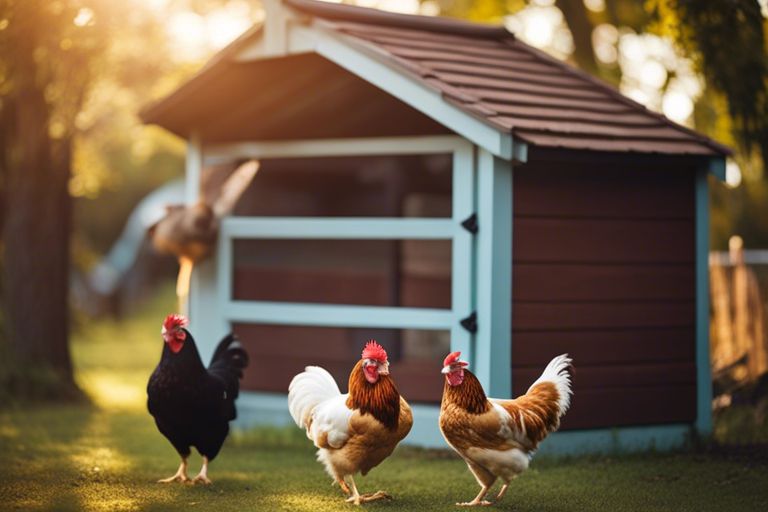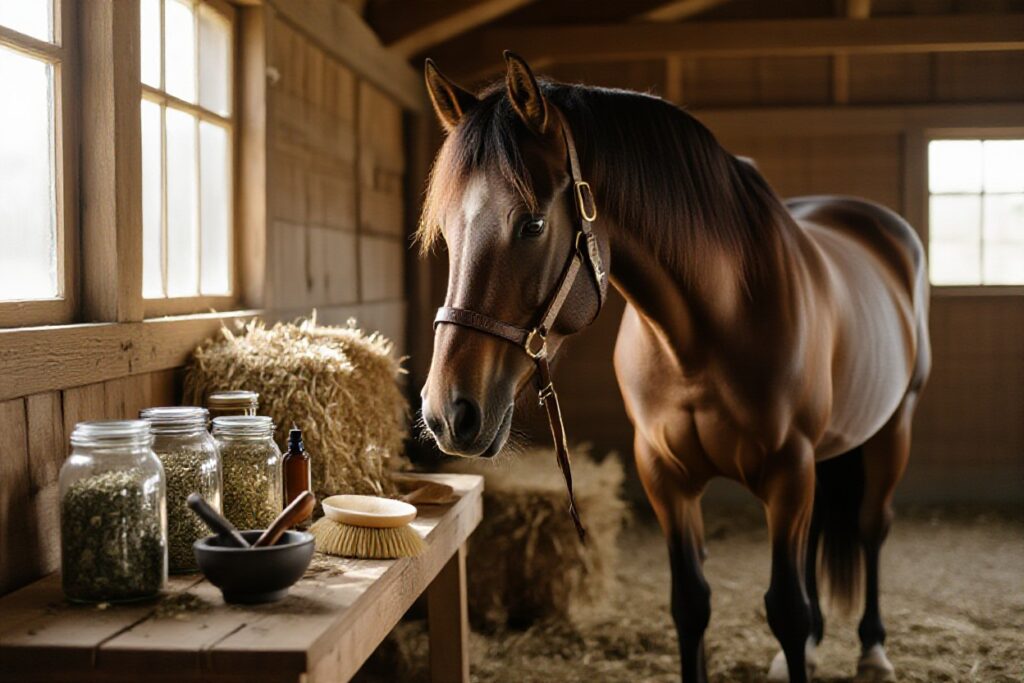You must prioritize the maintenance of your chicken coop to ensure a healthy and safe environment for your flock. This comprehensive guide will equip you with all the information and tips you need to effectively maintain your chicken coop. From regular cleaning routines to pest control measures, we’ll cover everything you need to know to keep your coop in top condition. By following these maintenance guidelines, you’ll ensure the well-being and productivity of your feathered friends.
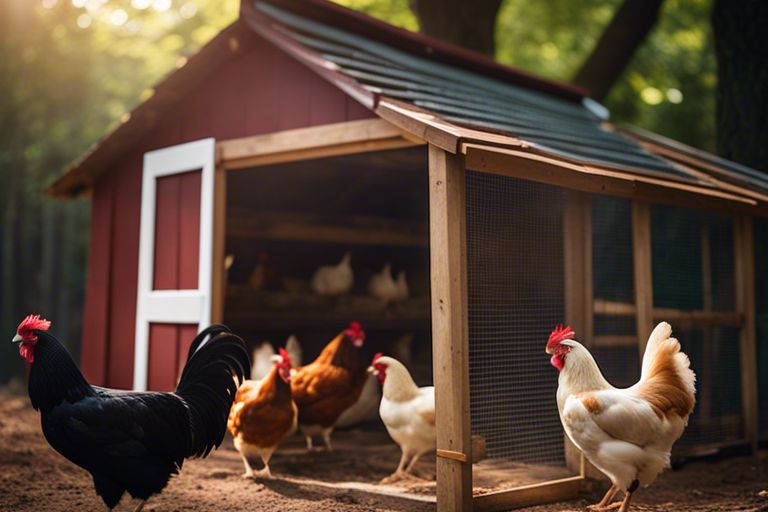
Understanding Different Types of Chicken Coops
A chicken coop is necessary for raising poultry. There are various types of chicken coops available, each with its unique features and benefits. It’s crucial to understand the different types to select the one that best suits your needs. Below is a breakdown of the various types of chicken coops in a detailed table format:
| Coop Type | Description |
| Traditional Coops | These are the classic wooden coops that have been used for centuries. |
| Mobile Coops | Also known as chicken tractors, these coops can be moved around your property. |
| Modern Coops | These coops are designed with innovative features for convenience and efficiency. |
| Coop Kits | Pre-fabricated coop kits that can be assembled easily. |
| DIY Coops | Coops built from scratch based on your own design and preferences. |
Traditional Vs. Modern Coops
An necessary aspect to consider when choosing a chicken coop is whether to go for a traditional or modern design. Traditional coops, made of wood, provide a rustic charm and are often customizable. On the other hand, modern coops come with advanced features like automated doors, built-in nesting boxes, and easy cleaning mechanisms. Consider your preferences and requirements before selecting the type of coop that best suits your needs.
Pros and Cons of Various Coop Materials
Even though there are various materials available for chicken coops, each comes with its own set of advantages and disadvantages. Whether you opt for wood, plastic, metal, or recycled materials, it’s necessary to weigh the pros and cons before making a decision. Below is a detailed breakdown of the pros and cons of various coop materials:
Wood
| Pros | Cons |
| Natural look | Requires regular maintenance |
| Good insulation | May rot over time |
| Customizable | Prone to termite damage |
Plastic
| Pros | Cons |
| Easy to clean | Can be flimsy |
| Weather-resistant | May fade in sunlight |
Metal
| Pros | Cons |
| Durable | Prone to rust |
| Predator-resistant | Can get hot in the sun |
Recycled Materials
| Pros | Cons |
| Eco-friendly | May not be as durable |
| Cost-effective | Varied quality |
Considering the climate, predator risk, budget, and personal preferences will help you make an informed decision on the best material for your chicken coop. Regular maintenance and proper care will ensure the longevity of your coop, regardless of the material chosen.
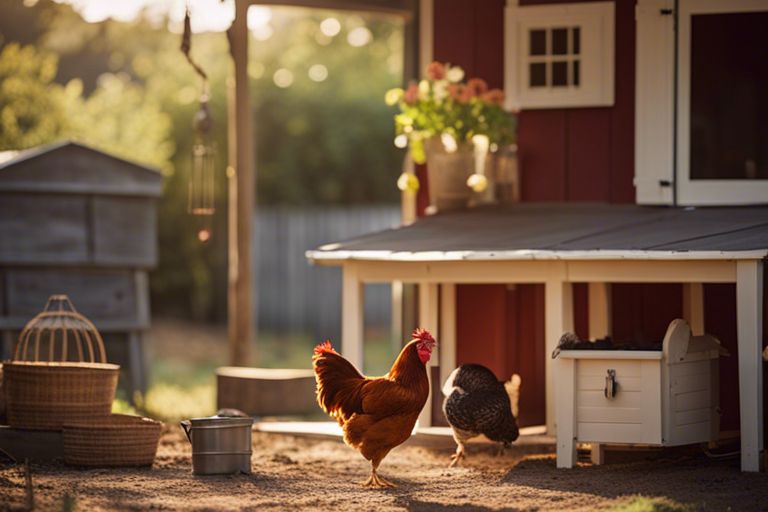
Factors Influencing Chicken Coop Maintenance
Some factors can greatly influence the maintenance required for your chicken coop. It is vital to consider these factors to ensure your coop remains in good condition and your chickens stay healthy and happy.
- Climate conditions
- Coop size and flock size
- Quality of materials used
- Frequency of cleaning and maintenance
Climate Considerations
Any changes in the climate can affect the maintenance needs of your chicken coop. Extreme temperatures can cause stress to your flock and affect the structure of the coop. Proper ventilation, insulation, and weatherproofing are vital to keep your chickens comfortable and safe year-round.
Coop Size and Flock Size
Coop size and flock size are crucial factors in determining the maintenance level needed. A larger coop will require more frequent cleaning and maintenance to prevent overcrowding and ensure proper ventilation. Likewise, the number of chickens in your flock will determine how often you need to replace bedding, clean feeders and waterers, and inspect for signs of wear and tear.
Thou, it is vital to assess these factors regularly and make adjustments as needed to maintain a healthy environment for your chickens.
Step-by-Step Chicken Coop Maintenance Tips
Daily Maintenance Tasks
Tips: All it takes is a few minutes each day to keep your chicken coop clean and your flock healthy. Make sure to remove any soiled bedding, refill water and food containers, and check for any signs of illness or injury among your chickens. Regularly collect eggs to prevent them from getting cracked or dirty. Consider giving your coop a quick sweep to get rid of any dirt or debris that might attract pests.
Seasonal Upkeep and Deep Cleaning
You: Assume that seasonal changes require different levels of care for your chicken coop. To ensure the longevity of your coop and the health of your chickens, it’s important to perform deep cleaning and maintenance tasks periodically. This includes scrubbing all surfaces, disinfecting with a poultry-safe cleaner, and checking for any signs of wear and tear that may need repairs.
A: When conducting deep cleaning, remove all chickens from the coop and allow for proper ventilation. Inspect the ventilation system and make sure it is functioning effectively. Replace any bedding or nesting materials that are soiled or worn out. Consider applying a layer of fresh bedding after cleaning to keep the coop dry and comfortable for your flock.
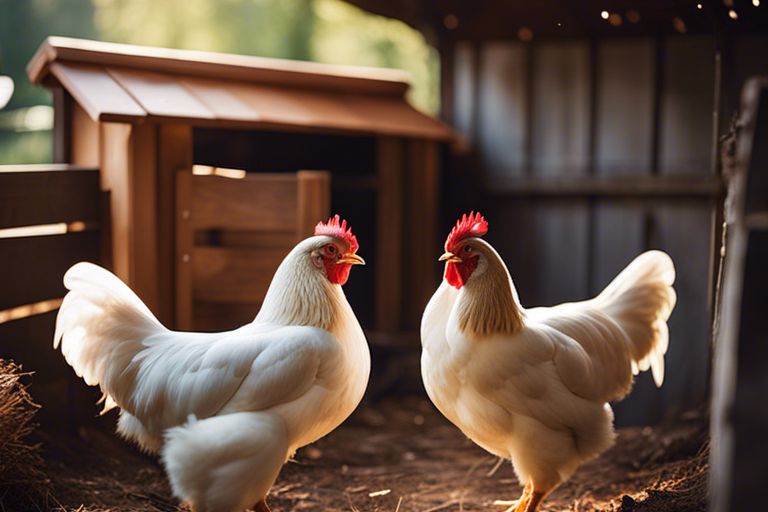
Advanced Maintenance Strategies
- Pest Control and Predator Prevention
Even the most well-maintained chicken coop can fall victim to pests and predators if not properly managed. It is imperative to implement a comprehensive pest control plan to protect your flock. Consider using natural deterrents like diatomaceous earth or installing predator-proof fencing to keep unwanted visitors at bay.
- Enhancing Coop Longevity and Comfort
You can prolong the life of your coop and ensure your chickens’ comfort by regularly inspecting and maintaining the structure. Keeping the coop clean and dry, providing adequate ventilation, and insulating it for extreme temperatures can all contribute to a more sustainable and enjoyable living environment for your birds.
Enhancing Coop Longevity and Comfort
You can further enhance the longevity and comfort of your coop by incorporating features such as roosting bars, nest boxes with soft bedding, and natural lighting. These additions not only promote a more natural and comfortable environment for your chickens but also contribute to their overall well-being and egg production.
Summing up
From above, it is clear that maintaining a chicken coop is crucial for the health and well-being of your flock. With proper care and regular maintenance, you can ensure a clean and safe environment for your chickens to thrive. Remember to follow the tips and guidelines outlined in this ultimate guide to chicken coop maintenance to keep your coop in top shape and your chickens happy and healthy.
FAQ
Q: Why is regular maintenance important for a chicken coop?
A: Regular maintenance is important for a chicken coop to ensure a safe and healthy environment for your chickens. Neglecting maintenance can lead to the spread of diseases, pests, and overall poor living conditions for your flock.
Q: How often should I clean my chicken coop?
A: It is recommended to clean your chicken coop at least once a week to remove droppings, feathers, and debris. A deep clean should be done every month to prevent the buildup of bacteria and odors.
Q: What tools do I need for chicken coop maintenance?
A: Some necessary tools for chicken coop maintenance include a rake, shovel, broom, dustpan, gloves, disinfectant spray, and a hose or water source for cleaning. Additionally, having a storage container for feed and bedding is beneficial.
Q: How can I prevent pests in my chicken coop?
A: To prevent pests in your chicken coop, ensure that the coop is sealed properly to keep out rodents and predators. Use pest-resistant materials for construction, keep feed stored in airtight containers, and regularly clean and disinfect the coop.
Q: What are some signs that my chicken coop needs repairs?
A: Signs that your chicken coop needs repairs include sagging roofs or walls, broken or damaged wire mesh, water leaks, gaps in the flooring, and evidence of pests. Regular inspections will help identify these issues early on.
Q: How can I maintain proper ventilation in my chicken coop?
A: Proper ventilation in a chicken coop is crucial for the health of your flock. Ensure there are vents or windows for air circulation, but avoid drafts. Clean vents regularly, especially in winter when windows may be closed for warmth.
Q: What is the best bedding material for a chicken coop?
A: The best bedding material for a chicken coop is a combination of materials such as straw, pine shavings, or shredded paper. These provide insulation, absorb moisture, and are comfortable for chickens to nest in. Change bedding regularly to keep it clean and dry.
